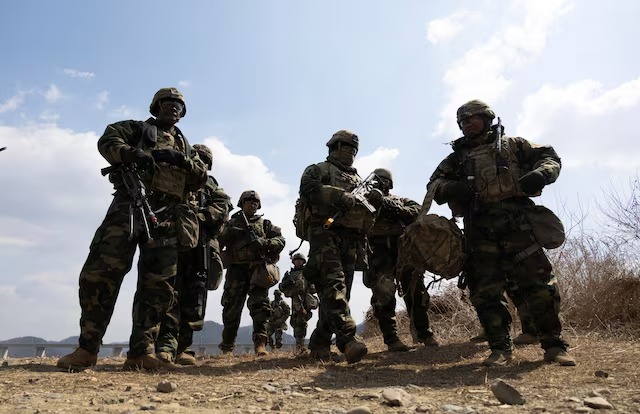South Korea's Military Drone Initiative: Training 500,000 Drone Warriors
Author: The Kathmandu Post

In recent years, South Korea has increasingly focused on advancing its military capabilities, particularly in the realm of unmanned technology. The announcement to train 500,000 ‘drone warriors’ underscores the importance the nation places on drone warfare in contemporary military strategies. The initiative reflects not only a commitment to enhancing defense mechanisms but also a strategic drive to foster a robust domestic drone manufacturing sector.
The plan to create a workforce of drone operators and technicians is a response to the evolving landscape of modern warfare, where unmanned systems are becoming crucial battlefield assets. Through this initiative, South Korea aims to develop a new generation of military personnel skilled in operating drones for reconnaissance, surveillance, and combat operations. This training program is part of a larger trend where countries prioritize unmanned technologies to maintain strategic advantages.

South Korean soldiers participating in a training exercise with drones.
South Korea's drive to enhance its drone capabilities aligns with wider regional security concerns, especially considering the volatile geopolitical situation in East Asia. The country confronts significant security challenges, particularly from North Korea, which has been ramping up its military activities, including missile tests and the development of its own drone capabilities. By cultivating a skilled workforce for drone operations, South Korea aims to ensure effective responses to these threats.
Moreover, fostering a domestic drone industry serves dual purposes: enhancing military efficiency and boosting economic growth. The South Korean government has recognized the vital role that technological innovation plays in global markets and seeks to position the country at the forefront of the drone technology sector. This initiative is expected to generate jobs and attract investments, thereby enhancing South Korea's competitive edge in high-tech industries.
As part of its strategic vision, South Korea is not only focusing on training personnel but also investing in the research and development of advanced drone technologies. This includes creating drones that can perform a variety of functions, from transportation logistics to advanced surveillance. Emphasizing innovation will allow South Korea to stay ahead in a rapidly evolving technological landscape where unmanned systems are increasingly central to military operations.
Furthermore, international collaboration will be integral to the success of South Korea's drone program. By engaging with allied nations, particularly the United States, South Korea can share best practices, gain access to cutting-edge technologies, and ensure interoperability among allied forces. Such partnerships will enhance strategic ties and create opportunities for joint training exercises and operational support.
Critics of the drone initiative argue that while enhancing military capabilities is essential, there must also be significant discussions around the ethical implications of drone warfare. The development and deployment of drones raise questions about accountability, civilians' safety, and the potential for unintended consequences in military engagements. Therefore, as South Korea advances in drone technology, it will also need to establish robust frameworks governing the use of these systems.
In conclusion, South Korea's initiative to train 500,000 drone warriors symbolizes a proactive approach to modern military challenges and reflects a broader commitment to technological advancement. By investing in both personnel and advanced drone technologies, South Korea aims to bolster its defense capabilities against emerging threats while simultaneously nurturing its domestic drone industry for future economic and strategic benefits.